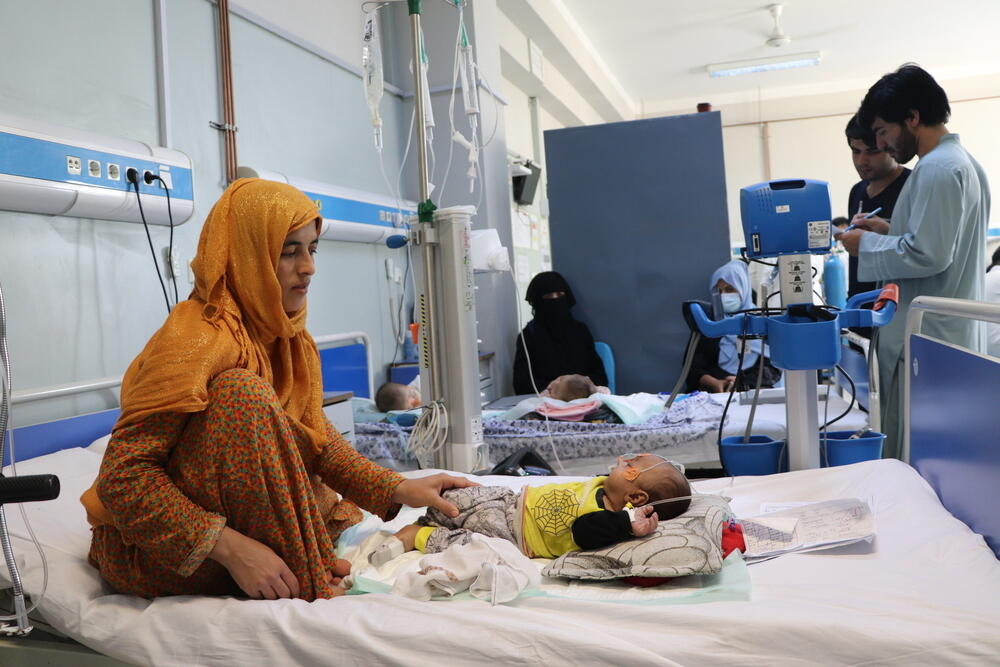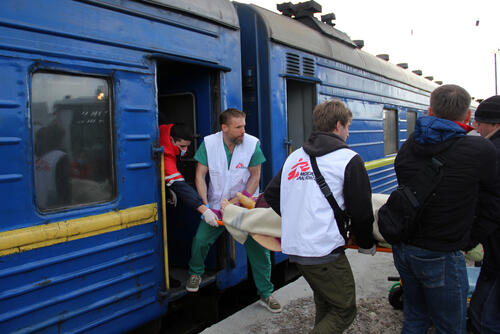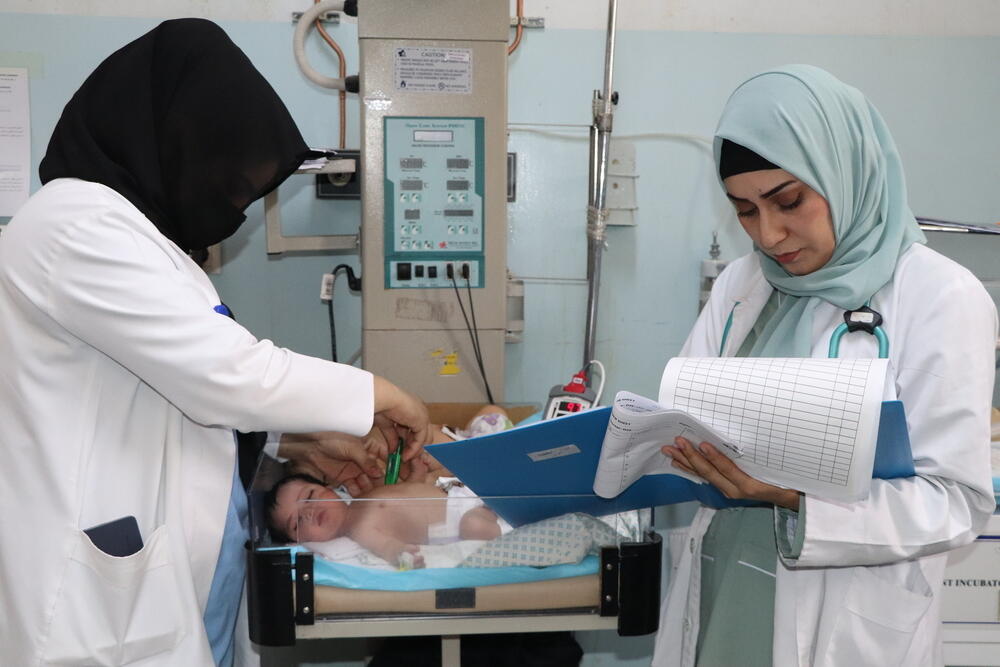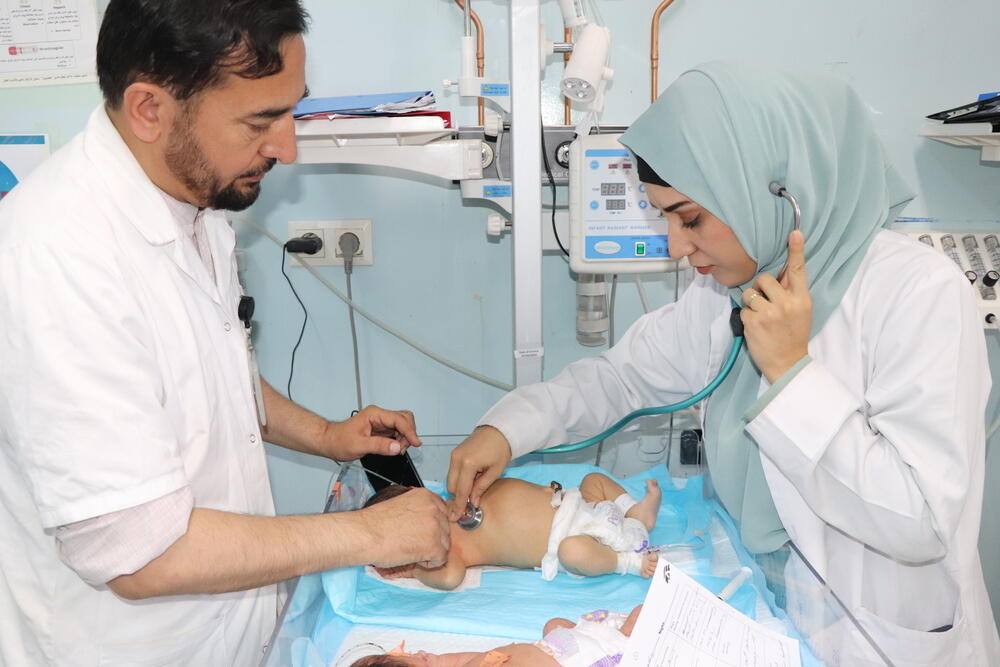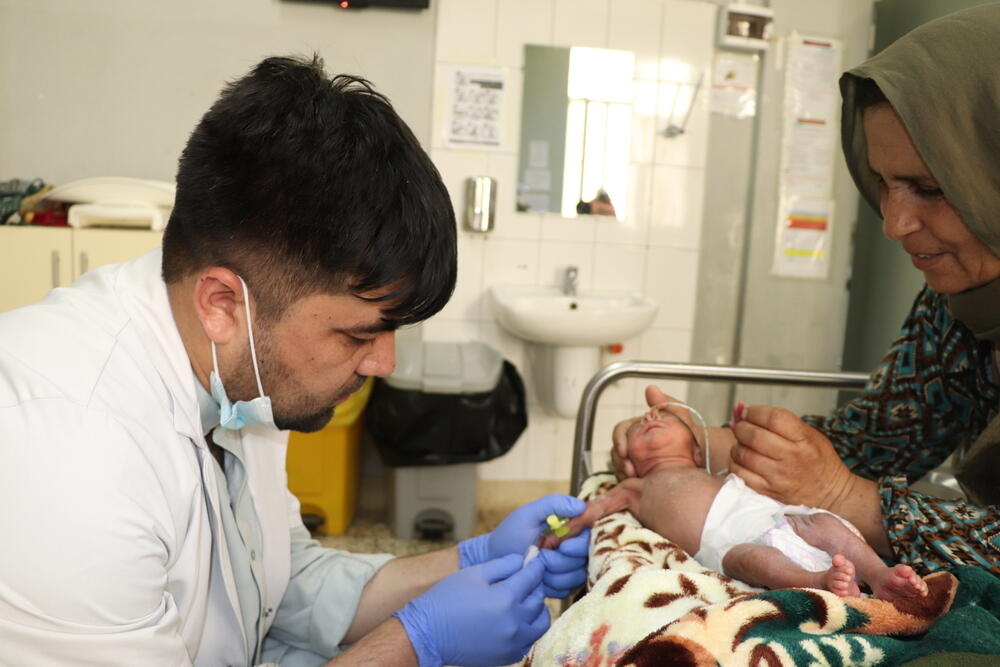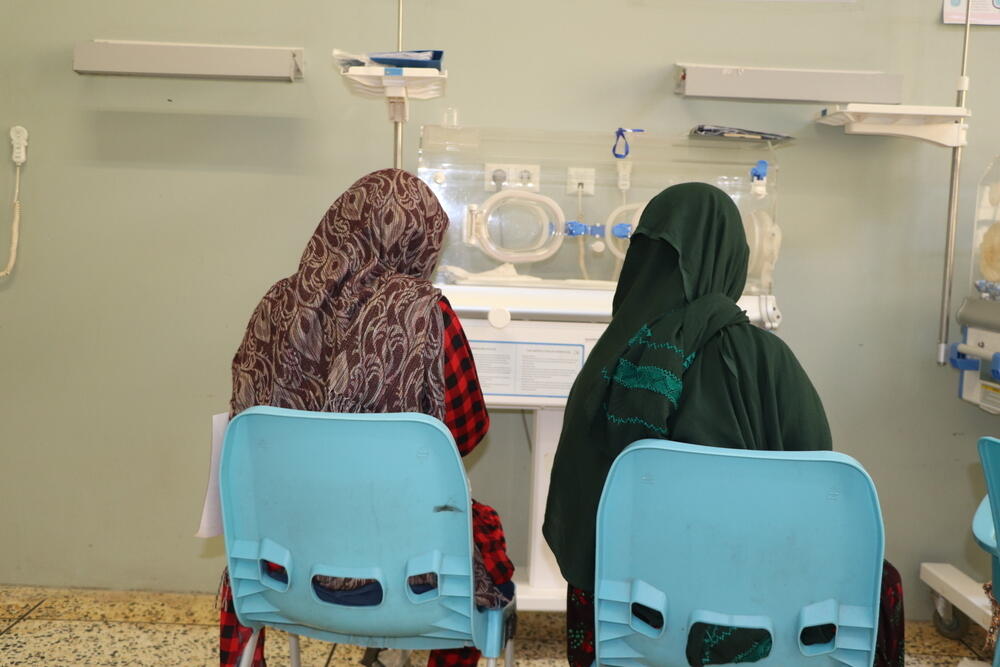Paediatrics in Afghanistan: “At last his mother smiled”
4 November 2024
When a baby is rushed to the MSF paediatric team in Herat, Afghanistan, it’s clear
that he is dangerously unwell. Paediatrician Prudence Jarrett has recently returned
from Herat and shares the story…
"Five-month-old Samiullah* had only been unwell for a day or two. He was feverish and
irritable, so his mother took him to their local hospital. But when he started having
seizures, the doctors said he needed more care than they could provide. Like hundreds
of other children across western Afghanistan every week, too sick to be treated near
home, Samiullah was referred to Herat Regional Hospital where MSF is supporting the
paediatric department.
A preventable crisis
The most likely diagnosis was clear – meningitis, inflammation of the membrane
surrounding the brain and spinal cord.
Vaccination can protect against many of the causes of this potentially fatal and
disabling disease, including common bacteria and tuberculosis. However, the
healthcare system in Afghanistan has long been underfunded and under-resourced.
When the Islamic Emirate of Afghanistan (also known as the Taliban), came into power
in 2021, there was a knock-on effect on aid funding which had significant and lasting
economic repercussions, including for health care. It means the fragile health system
cannot provide comprehensive primary care, including vaccinations. As a result, many
of the children we see at the hospital here are severely unwell with conditions that
could have been prevented.
Ceaseless activity
Samiullah was admitted to a bed by the window in intensive care, underneath a painting
of a mountain landscape and hot air balloons. The tranquil image belied his critical
condition and the ceaseless activity of the room.
The paediatric intensive care unit (ICU) has beds for 30 children, but in practice it is not
uncommon to have 45 or 50 children admitted in ICU at any one time.
Each room is packed with cumbersome oxygen concentrators with which the nurses
play a never-ending game of Tetris, moving them around drip stands and beds so that
the tubing can reach the patient. In the UK the oxygen would be supplied through pipes
in the walls, but here these life-saving machines fill the rooms with incessant whirring
and heat, adding to the oppressive Herat summer. At times it feels impossible to think in
such a room, let alone auscultate with a stethoscope the quiet heart-sounds of a sick
baby.
A resistant bacteria?
Recurrent seizures can cause brain damage and even death. In the UK when a child has
seizures that don’t respond to treatment, they are anaesthetized and put on a ventilator
after less than an hour. But stopping the fitting in this way requires equipment and
specialist training that isn’t available in Herat. Without it, Samiullah seized for days.
And his fever continued even as we worked our way through the different antibiotics that
can be used for meningitis, plus antiviral medication in case the cause wasn’t bacterial
at all. It was impossible to confirm the diagnosis – we didn’t have access to the
microbiology tests, and even if we had, it would have needed a lumbar puncture to get a
fluid sample – a very high-risk procedure on a seizing child.
What we did know is that, here in Afghanistan, almost every antibiotic imaginable is
easily available to buy on the market. The world’s most powerful injectable drugs,
usually used sparingly and under expert advice, can be purchased and administered at
home. The result is worrying rates of antibiotic resistance.
I began to wonder if the bug making Samiullah so sick was resistant to even the
strongest medications in our pharmacy. Did our drugs even stand a chance?
A promise
As I looked at Samiullah every day, his grandmother next to him, I began to anticipate
his death. He looked worse and worse, his breathing shallower, his need for medical
oxygen increasing.
One day, as we reviewed the most critical patients, Samiullah’s symptoms had
worsened to the point that I invited his grandmother and his teenage uncle – the
responsible male of the family – to talk.
I told them that I thought he might not survive the coming days. I asked them what they
would like us to do when his heart stopped beating, suggesting that resuscitation wasn’t
likely to be successful and wouldn’t be in his best interest. They agreed to a ‘Do Not
Resuscitate’ order and asked us to do our best to care for him before it got to that point.
I promised that we would.
A mother’s love
It was only after this that I met Samiullah’s mother for the first time. She had been sitting
outside the gates of the hospital all this time, wanting to be close to her baby, but
overwhelmed at the prospect of seeing him so unwell. Knowing that he was likely to die,
she came to be by his side.
Her name was Zamina*. She told me how alone she felt, despite the support of her in-
laws. The previous October there was an earthquake in Herat that left about 2,000
people dead and countless injured. Zamina lost her husband and her only other child in
the earthquake. She was pregnant with Samiullah at the time. Now he was her only
remaining family. Tearfully she pleaded with me to do everything I could to help him
survive.
Small signs
Initially we struggled to find a reason to be hopeful.
But over the next few days small signs of improvement proved our doubt wrong. His
fever stopped. He didn’t have a seizure for a few days, and we were able to taper off the
anti-seizure medication. Then he started opening his eyes and moving his arms. A few
days later he was able to start breastfeeding again. After days of anxious looks between
us, unspoken and grave understanding, at last his mother smiled.
436,100
EMERGENCY ROOM ADMISSIONS IN AFGHANISTAN IN 2023
45,100
BIRTHS ASSISTED BY MSF STAFF IN AFGHANISTAN IN 2023
16,500
SURGICAL INTERVENTIONS IN AFGHANISTAN IN 2023
A daily highwire act
Living conditions for many people across Afghanistan are incredibly hard. Families are
unable to buy food and goods for daily life, measles and malnutrition are endemic, and
infants like Samiullah perform the daily high wire act of trying to survive childhood.
Despite the clear need, the health sector remains grossly under-resourced.
Nevertheless, the MSF team in Herat continue to do everything they can for their young
patients. As a tertiary hospital, they see only the sickest children and are often their last
chance at life-saving care.
A little hope
Severe meningitis can result in serious long-term neurological damage. Only time will
tell how complete Samiullah’s’ recovery will be. But he lives. He stayed in hospital for a
few more weeks to complete his treatment but finally he was discharged home with his
mother, the pieces of her fragmented family back together and a little hope in their
future restored."
*Names changed
